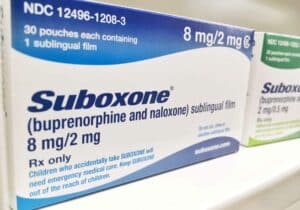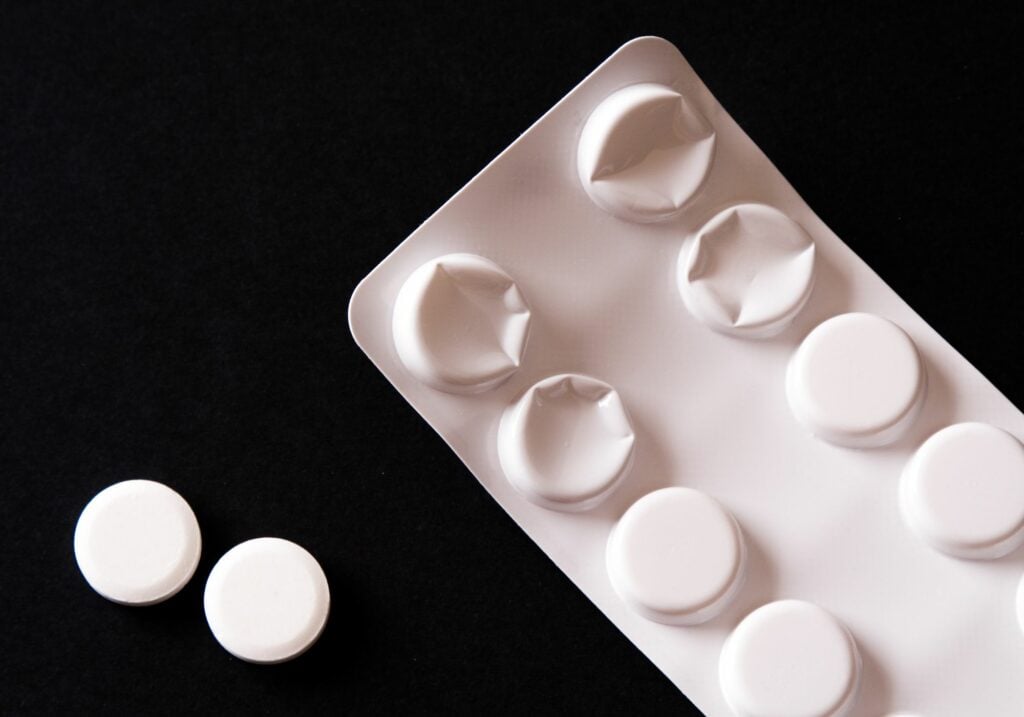What is Adderall?
Adderall, a widely prescribed medication, functions as a central nervous system (CNS) stimulant and is primarily utilized in treating attention deficit hyperactivity disorder (ADHD) across various age groups, including children, adolescents, and adults. Additionally, it’s prescribed for narcolepsy, a disorder affecting sleep patterns. Comprising amphetamine and dextroamphetamine, Adderall was first developed in 1920 and became significantly popular during World War II for its ability to reduce fatigue and enhance alertness among soldiers. It is available in both tablet form and as extended-release capsules (Adderall XR), with dosages ranging from 5 mg to 30 mg.
While Adderall is highly effective in managing ADHD and narcolepsy, it also presents risks of misuse and dependency. As a Schedule II controlled substance, it’s acknowledged for its potential for abuse and addiction, in spite of its therapeutic benefits. The misuse of Adderall and similar prescription stimulants can arise from various intentions, such as boosting alertness, enhancing concentration, improving study habits, appetite control for weight loss, drug experimentation, or seeking a state of euphoria.
Adhering to prescribed guidelines for Adderall use is critical. Misuse, such as taking higher doses than prescribed or using the drug in ways not intended, can pose severe health hazards, including the risk of an Adderall overdose. Consequently, while Adderall is an invaluable resource in treating certain medical conditions, it’s imperative to be vigilant about its potential dangers.
For those struggling with Adderall addiction in Chattanooga, TN, Iris Wellness Group is here to help. Contact us at 423-460-9766 to start your journey towards recovery from Adderall addiction.
Adderall Overdose Symptoms
Experiencing an overdose on Adderall can result in a spectrum of symptoms reflective of amphetamine toxicity. The severity and type of these symptoms can vary, including:
- Restlessness: A persistent inability to remain still or relaxed.
- Agitation: Experiencing heightened anxiety or nervousness.
- Tremor: Uncontrolled shaking or trembling of the body.
- Exaggerated Reflexes: Abnormally heightened reflexive actions.
- Confusion: Challenges with understanding, focusing, or concentration.
- Panic: Experiencing intense, overwhelming fear or anxiety.
- Aggression: Noticeable increase in irritability or hostile behavior.
- Paranoia: Unreasonable feelings of mistrust or suspicion.
- Hallucinations: Seeing, hearing, or sensing things that are not actually present.
- Elevated Body Temperature: Experiencing unusually high body heat or fever.
- Rhabdomyolysis: A severe condition involving the breakdown of muscle tissue, leading to potential kidney damage.
Prompt recognition of these symptoms is critical, as they signal a potentially life-threatening situation. If an Adderall overdose is suspected, it is imperative to seek immediate medical care.
Risk Factors for Adderall Overdose
In 2017, prescription amphetamines, such as Adderall, contributed to over 2% of all drug-related overdose fatalities. There are specific factors that can increase the risk of experiencing an Adderall overdose:
- Use of Non-Prescribed Adderall: Consuming Adderall that hasn’t been prescribed to you escalates the risk of an overdose.
- Improper Use of Medication: Methods like snorting or injecting Adderall, or using it in any non-prescribed manner, can heighten the likelihood of experiencing toxic effects.
- Exceeding the Prescribed Dosage: Consuming more Adderall than what is prescribed can lead to an overdose.
Physicians usually examine your medical history for conditions such as cardiac diseases before prescribing Adderall, given its potential impact on cardiovascular health. They might also assess any family history of heart-related issues or sudden death, as these factors could increase the risk of Adderall toxicity.
The combination of opioids with stimulants like Adderall or cocaine can significantly escalate the risk of overdose. Opioids tend to slow down breathing, and when combined with stimulants that raise the body’s need for oxygen, this mix can be particularly hazardous, potentially resulting in overdose toxicity and death.
Additionally, mixing Adderall with certain decongestants found in over-the-counter cold medications can be dangerous. These substances can elevate blood pressure or induce irregular heart rhythms, raising the chances of combined drug toxicity.
Furthermore, the concurrent use of Adderall or other amphetamines with medications that affect the body’s serotonin neurotransmitter system poses a risk for serotonin syndrome. This severe condition can manifest through a range of symptoms, including:
- Agitation
- Hallucinations
- Rapid Heart Rate
- Fever
- Nausea and Vomiting
- Muscle Rigidity
- Seizures
- Coma
- In some cases, Resulting in Death.
Being aware of these risk factors is essential for the safe use of Adderall and in preventing potential adderall overdose situations.
What Causes an Adderall Overdose?
An overdose on Adderall can happen when the ingested dose surpasses the body and brain’s capacity to metabolize it effectively. Adderall works by acting on certain neurotransmitters in the brain, like dopamine and norepinephrine, which play a crucial role in signal transmission and are essential for attention and response mechanisms. An excessive dose of Adderall can disrupt these neural processes, leading to an overload, especially when the drug’s effects overwhelm the body’s regulatory abilities.
How Common Are Adderall Overdoses?
The incidence of Adderall and other stimulant overdoses is worryingly notable. In 2019, about one-quarter of all drug-related fatalities involved a stimulant, underlining the risks associated with these drugs. Misuse of prescription stimulants is also a significant concern. In 2020, around 5 million people in the U.S. reportedly misused prescription stimulant medications, reflecting a broad issue that underscores the importance of heightened awareness and careful use of stimulants like Adderall.
Who’s Most at Risk of an Adderall Overdose?
Typically, the risk of experiencing an Adderall overdose is low when the medication is used according to a healthcare professional’s prescription. The danger escalates with misuse, including consuming the drug in non-prescribed ways, such as snorting or injecting. Combining Adderall with other substances, particularly depressants or other stimulants, can further increase the likelihood of an overdose. Additionally, using Adderall obtained from unofficial sources poses significant risks. Such substances may be counterfeit, incorrectly labeled as Adderall, or mixed with other dangerous drugs, including opioids. This uncertainty dramatically amplifies the potential for an overdose and other adverse effects.
How Do You Treat an Adderall Overdose?
Treating an Adderall overdose is a critical medical task. Unlike certain drug overdoses where specific antidotes can reverse the effects, there is no direct counteragent for an Adderall overdose.
The medical response to an Adderall overdose is symptom-focused. For example:
- Heart Symptoms: Medical professionals work to stabilize and regulate heart rate and rhythm if the heart is affected by the overdose.
- Breathing Issues: If breathing is compromised, healthcare providers may supply oxygen or other forms of respiratory support.
Additionally, medications may be used to mitigate symptoms like anxiety and restlessness. Creating a secure and tranquil environment is also integral to the treatment, ensuring the individual’s safety and preventing self-harm or harm to others. The primary objective in treating an Adderall overdose is to manage immediate symptoms and stabilize the patient.
What To Do During an Adderall Overdose?
Immediate action is critical in the event of an Adderall overdose. Here are essential steps to follow:
- Call Emergency Services: Contacting 911 immediately is the most crucial step. Prompt medical response is key.
- Provide Essential Information: Be prepared to inform emergency responders about important details such as the individual’s age, any existing medical conditions, allergies to drugs, recent use of drugs or alcohol, and the approximate amount of Adderall ingested.
- Ensure Safety: Make the environment safe. Eliminate any objects that could pose a danger, particularly if seizure risk is present.
Timely treatment can greatly enhance recovery prospects. Managing an amphetamine overdose involves intensive medical care, potential medications, and supportive measures to address critical symptoms, including heart issues or seizures. The faster the response, the better the potential outcome.
How Much Adderall Does it Take to Overdose?
The precise amount of Adderall leading to an overdose can be unpredictable and varies between individuals. Factors influencing this threshold include:
- Method of Consumption: The way Adderall is taken, whether orally, snorted, or injected, affects its intensity and rapidity of impact.
- Timing of Last Dose: The timing since the last dose affects the existing concentration of the drug in the system.
- Concurrent Substance Use: Using other substances, including alcohol, with Adderall can heighten overdose risks.
- Drug Tolerance: Individual tolerance, developed over time, influences how much Adderall can be consumed safely.
- Past Overdose Experiences: Previous overdoses can indicate how the body may react to certain drug quantities.
- Overall Health Profile: Factors like metabolic rate, liver function, and existing health conditions play a role in how Adderall is processed.
To avert an Adderall overdose, it’s vital to use Adderall only as prescribed by a healthcare provider. Adhering strictly to the prescription, including dosage and method of intake, is essential to minimize the risk of adverse reactions, including overdose.
Long-Term Impacts of an Adderall Overdose & Aftercare
Suffering from an Adderall overdose can lead to long-lasting health issues. In severe instances, individuals may experience an intracerebral hemorrhage or an ischemic stroke, requiring surgical interventions and continuous care to address any resulting neurological implications.
A severe long-term effect of a stimulant overdose like Adderall is rhabdomyolysis. Resulting from stimulant toxicity, this condition can cause serious harm to vital organs, including the kidneys and heart. The gravity of these potential outcomes highlights the critical need to avert overdose toxicity.
To minimize the risk of an Adderall overdose and its possible long-term effects, consider these preventive measures:
- Only Use Prescribed Medications: Take only those medications which are prescribed to you.
- Strictly Follow Prescription Guidelines: Adhere to the dosage and administration instructions provided by your healthcare provider.
- Consult Before Mixing Substances: Refrain from combining Adderall with other substances without explicit approval from a healthcare professional.
By adhering to these precautions, you can significantly lower the chances of an Adderall overdose and safeguard against potential long-term health complications.
Adderall Addiction & Treatment
Substance Use Disorder (SUD) is identified as a brain disorder where there’s a compulsive need to continue drug use despite its harmful effects. In the context of Adderall addiction, a person with SUD may display at least two of the following symptoms over the past year:
- Excessive usage of Adderall beyond the intended amount.
- Persistent cravings and urges to use Adderall.
- Continued use of Adderall despite aggravating health or psychological issues.
- Escalating conflicts with family and friends due to Adderall usage.
- Inability to fulfill responsibilities at work, home, or school because of Adderall.
- Devoting significant time and resources to acquire, use, and recover from Adderall.
- Using Adderall in hazardous situations.
- Repeated, unsuccessful attempts to stop or cut down on Adderall use.
- Giving up important activities like hobbies or sports in favor of using Adderall.
- Developing a tolerance to Adderall, needing increasing amounts to feel the same effects.
- Experiencing withdrawal symptoms when abstaining from Adderall.
An Adderall overdose is a critical sign that further evaluation and possibly rehabilitation could be necessary. Adderall rehab programs are designed to uncover and address the underlying causes of stimulant misuse. These programs offer various formats, such as inpatient treatment, where individuals stay at the facility, and outpatient treatment, involving several hours of therapy sessions each week.
Rehab therapy typically includes both individual and group sessions, focusing primarily on behavioral therapies. These interventions are geared towards changing perceptions and attitudes about drug use. They provide tools for managing stress without substance dependence and techniques for resisting the urge to use. By tackling these foundational issues, rehabilitation serves as a crucial step in breaking free from Adderall addiction and moving towards a healthier, substance-free life.
Adderall Withdrawal Treatment at Iris Wellness Group
In the serene suburbs of Chattanooga, TN, Iris Wellness Group is a haven for those fighting Adderall addiction. Our Adderall addiction treatment center offer a nurturing environment conducive to recovery.
Our compassionate Adderall outpatient program coffers top-tier medical outpatient Adderall detox in Chattanooga, TN, ensuring a safe and effective detox process. Once free from addictive substances, you can seamlessly transition into one of our specialized outpatient treatment programs at Iris Wellness Group, designed to address substance use disorders:
- Outpatient Detox: Combines the convenience of living at home with the effectiveness of regular treatment sessions, ideal for integrating recovery with your everyday life.
- Outpatient Rehab: This program is really flexible, designed to work around your daily schedule.
- Partial Hospitalization Program (PHP): It’s structured but you don’t have to stay overnight. It’s like getting intensive treatment during the day while you live at home.
- Intensive Outpatient Program (IOP): This one offers deeper, more focused care but still lets you keep up with your everyday responsibilities.
- Dual Diagnosis Treatment Program: This is specially for people who are dealing with both addiction and mental health issues at the same time.
Our Adderall treatment programs incorporate a variety of interventions:
- Medication-Assisted Treatment (MAT): This uses medicines to help reduce withdrawal symptoms and the urge to use opioids.
- Psychotherapy: This is all about tackling the mental and emotional factors that play a part in addiction by using CBT or DBT.
- Group Therapy: Here, you’ll get support and learn with others who are going through similar experiences.
- Individual Therapy: You’ll get one-on-one support that’s tailored just for you.
- Family Therapy: This helps fix and strengthen your relationships with family, which is super important.
- Holistic Therapies: These focus on improving your overall health – body, mind, and spirit.
- Aftercare: We’ll keep supporting you even after your treatment is over.
Begin your path to recovery with Iris Wellness Group. Our experienced team is here to guide and support you. For more information or to start Adderall addiction treatment, reach out to our admissions team at 423-460-9766.












